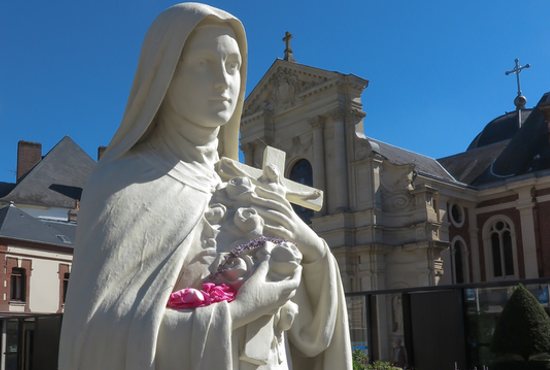
Over the years, I have known many people who have served in and gone on mission trips to Africa, Asia and Latin America.
A common story I hear and know personally is the way we are welcomed by people who have so little. Their generosity can be overwhelming.
I remember the story that one woman, returning from a mission trip to Tanzania, told me about a meal she had at the home of a family. They brought her into the center of their simple grass hut and served her a chicken dinner, which seemed like all they had. She recalled how this family, who had so little food, watched her with such joy on their faces as she ate in their presence. She ate the meal feeling guilty and astonished by such generosity and hospitality.
“I thought I was a welcoming person until I met these people,” she said. “I went on a mission trip to serve the poor and it was the poor who served me. They gave from their emptiness, and I became filled.”
The Scriptures consistently lift up the examples of humble people with very little acting with generosity. Recall the stories of Abraham welcoming strangers, a poor widow giving all she had to serve Elijah and the widow Jesus noticed in the temple giving her last two cents to God. In each case, when they shared all they had, they received a surprising blessing of God’s providence.
Jesus blessed them as the poor in spirit living in the kingdom of God. The Bible refers to them as the anawim — the little poor ones of God. To be clear, this blessing does not celebrate poverty, malnutrition, injustice or taking advantage of vulnerable people. Rather, it lifts up the spirit of those who are generous despite their poverty. It blesses those who voluntarily become poor for God and make space in their lives for the least among us.
Jesus gave himself out of love for us. St. Paul says that Jesus, “Even though he was in the form of God, did not regard equality with God something to be grasped. Rather, he emptied himself taking the form of a servant … he humbled himself, becoming obedient to death” (Phil 2:6-8). Jesus fills the world by emptying himself.
Following Jesus’ way is a little way. It is a way of emptying ourselves, being generous, welcoming the least of those among us and placing ourselves in God’s providence. It also means being open to receive the hospitality and generosity of God’s little ones who stand at the gates of our neighborhoods, along the road, and sitting next to us in Church.
This little way has inspired missionary movements in the Church like St. Thérèse of Lisieux’s Little Way and St. Charles de Foucauld’s Little Brothers and Sisters of Jesus. They adopted Jesus’ way of emptying themselves so that they had space for God to fill them. St. Charles is known for his Prayer of Abandonment:
“Father, I abandon myself into your hands, do with me what you will.
Whatever you may do, I thank you: I am ready for all, I accept all.
Let only your will be done in me and in all your creatures.
I wish no more than this, O Lord. Into your hands, I commend my soul;
I offer it to you with all the love of my heart;
For I love you, Lord, and so need to give myself:
To surrender myself into your hands without reserve and with boundless confidence.
For you are my Father. Amen.”
During the Advent and Christmas seasons, we reflect again on the spirit of giving and receiving and the gift of Jesus being born into our world. We remember his humble birth in a simple stable among his poor parents and shepherds. He came among us to bring good news for the poor. May we share the gifts of ourselves with faithful and generous hearts this Christmas and always.
Deacon Friesen is director of the Center for Mission, which supports missionary outreach for the Archdiocese of St. Paul and Minneapolis. He can be reached at friesenm@archspm.org



